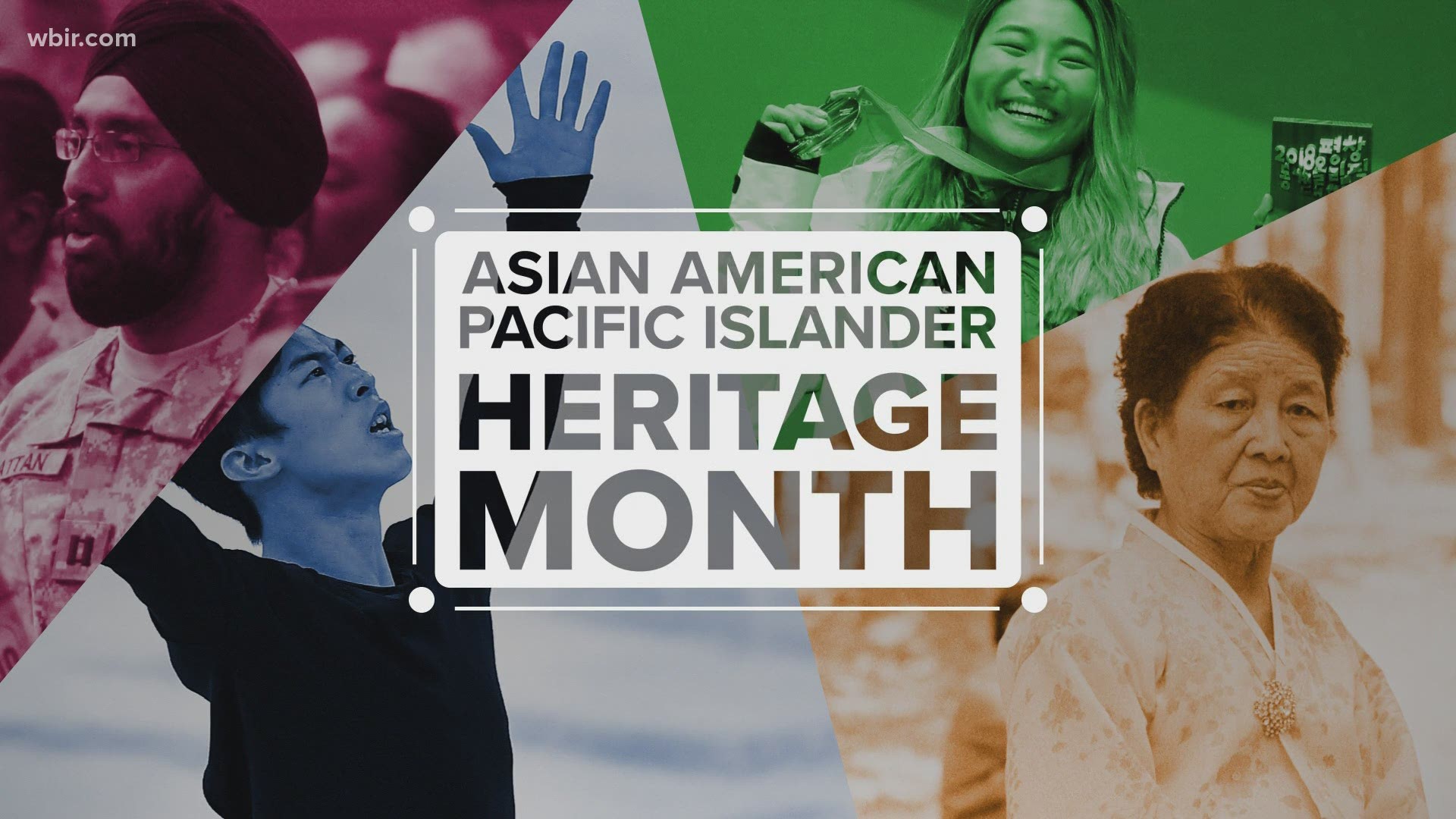Celebrating AAPI Month in East Tennessee: Part 1
East Tennessee has a rich AAPI history dating back to the 1800s.

In honor of Asian-American Pacific Islander Heritage Month, we are celebrating the Asian influences here in East Tennessee from one of our area's largest employers to a comedian who has made his mark on country music's greatest stage.
Knoxville's AAPI Origins
Asian culture has ingrained itself into the ether of East Tennessee, and its influence on Knoxville dates back to the late 19th century.
The 1880s saw a small number of Asian immigrants make Knoxville home.
Newspapers from the time cite one of the first Asian-owned businesses in Knoxville was a hand laundry that opened on Gay Street by a Chinese gentleman named Hong Lee in 1883.
Lee closed his business in 1884 to set up shop in Chicago. In his absence, partners Chung Wo and Lee Shoo opened another shop on Clinch Avenue.
Wo and Shoo’s laundry remained open until 1891 when a financial dispute between them ended with Shoo shooting at his partner. Both men were arrested in the altercation.

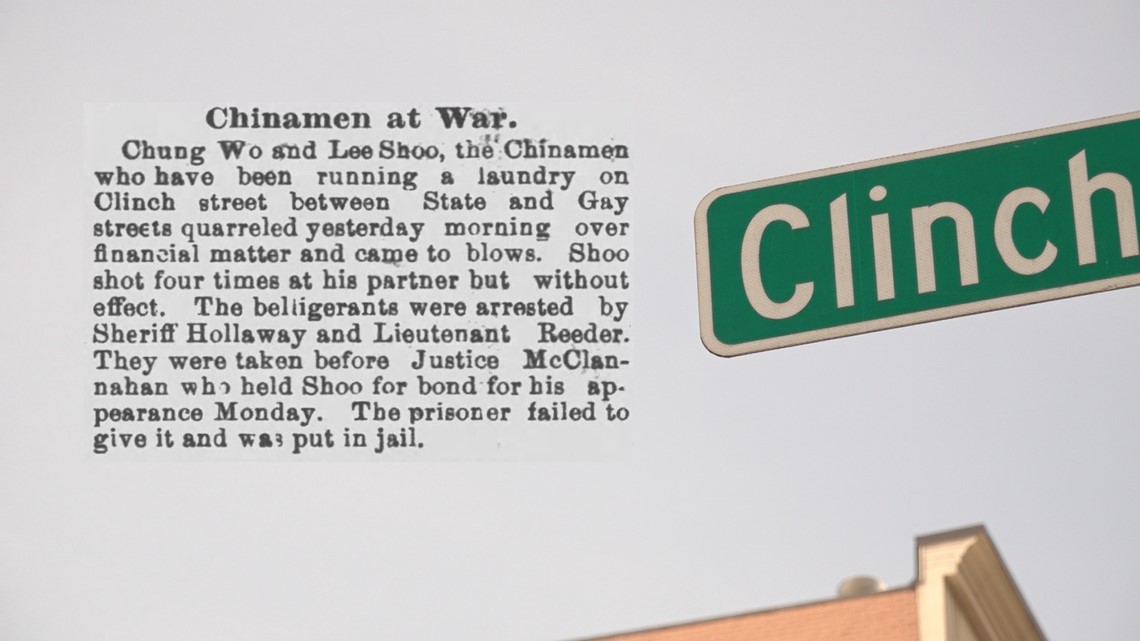
Due to the restrictive Chinese immigration policies of the time, Asian-owned businesses opened less and less frequently until the mid-1920s when Leong Foo opened another laundry on Central Avenue in the Old City.
His business gave rise to more and more laundries opening in the area. By 1930, there were enough Chinese-owned laundries in Knoxville that they warranted their own category in the city directory.
Another prominent business was the Norris Book Exchange on Gay Street. Opened in 1934 by Vanderbilt graduate Ben Kwok, the Exchange was believed to be the first Asian-run American bookstore in the country.

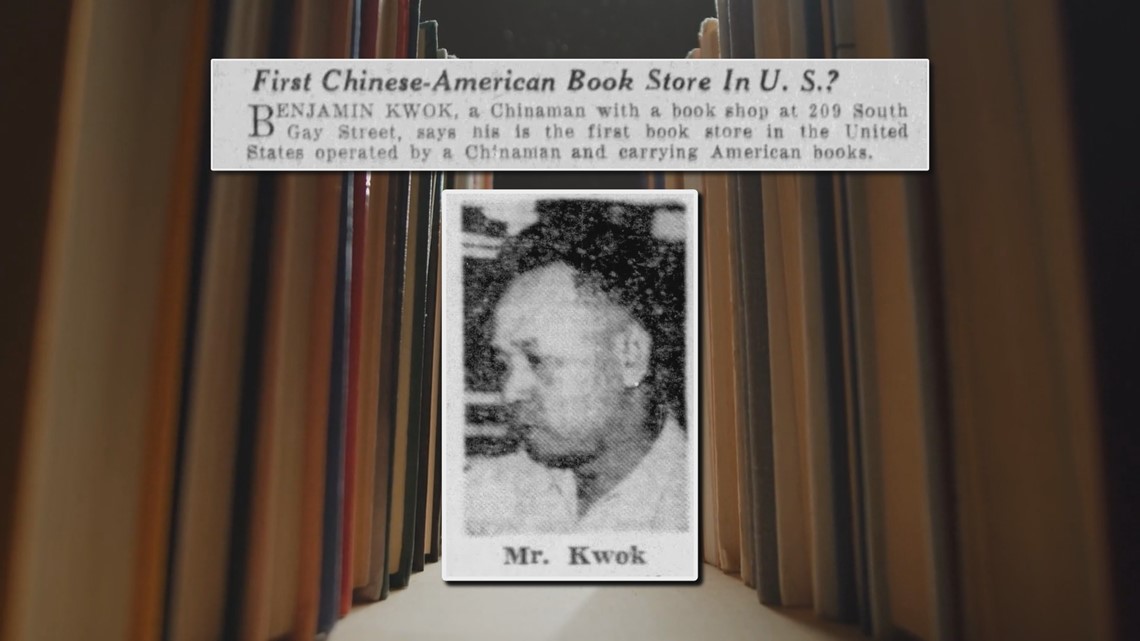
Kwok went on to become a very popular public speaker and newspaper writer until his death in 1951.
George Masa
George Masa was born Masaharu Iizuka in Osaka, Japan in 1881. He arrived in the United States in 1901 and settled in Asheville, North Carolina in 1915.
“He changed his name to George Masa here in Asheville to be easier for the local folks to feel comfortable with him,” said Masa historian Paul Bonesteel.

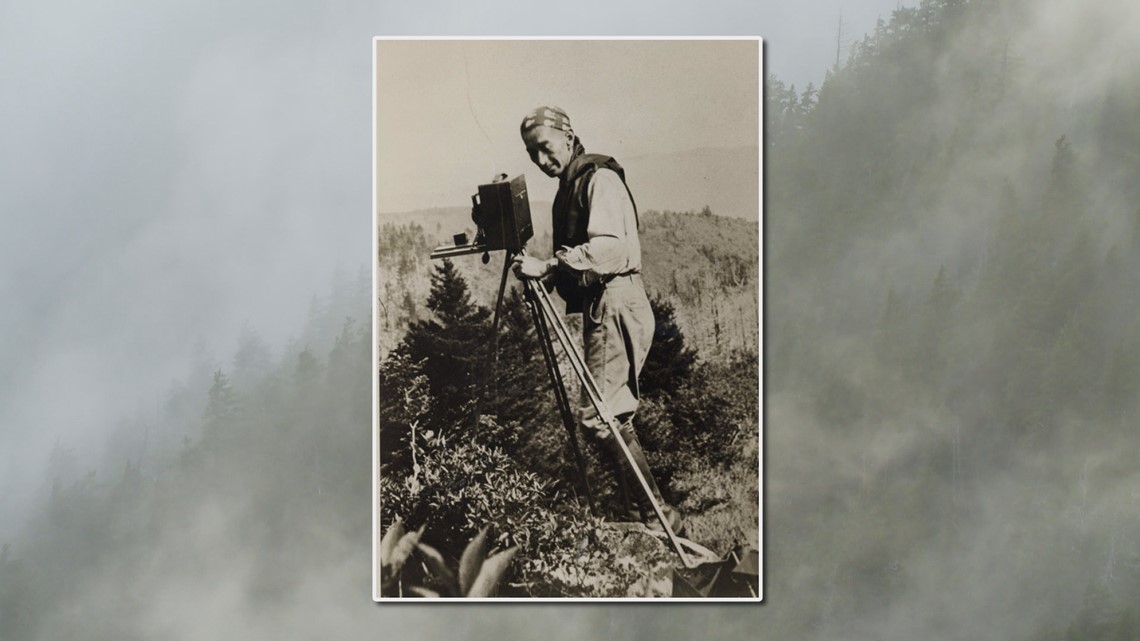
A photographer by trade, Masa would often load himself up with half of his body weight in camera equipment to document the various peaks in the Smokies.
“He would hike 10, 20 miles with his camera equipment to get views that could only be seen from traveling that distance on foot. That did make his photography somewhat unique that he went way off the road and way off the trails and even places with no trails in the 1920s to get the photographs,” Bonesteel said.
It was these photographs that proved pivotal in the push to make the Smokies a recognized national park.
“Folks from Knoxville, Asheville and other places in the South had been lobbying for years for a Great Smoky Mountains National Park. The photography of George Masa, the photos were instrumental from what we understand, because a lot of the people in Washington that were approving this money had no idea what the Great Smoky Mountains National Park would look like, and how it would be part of the American mythology of national parks,” Bonesteel said.

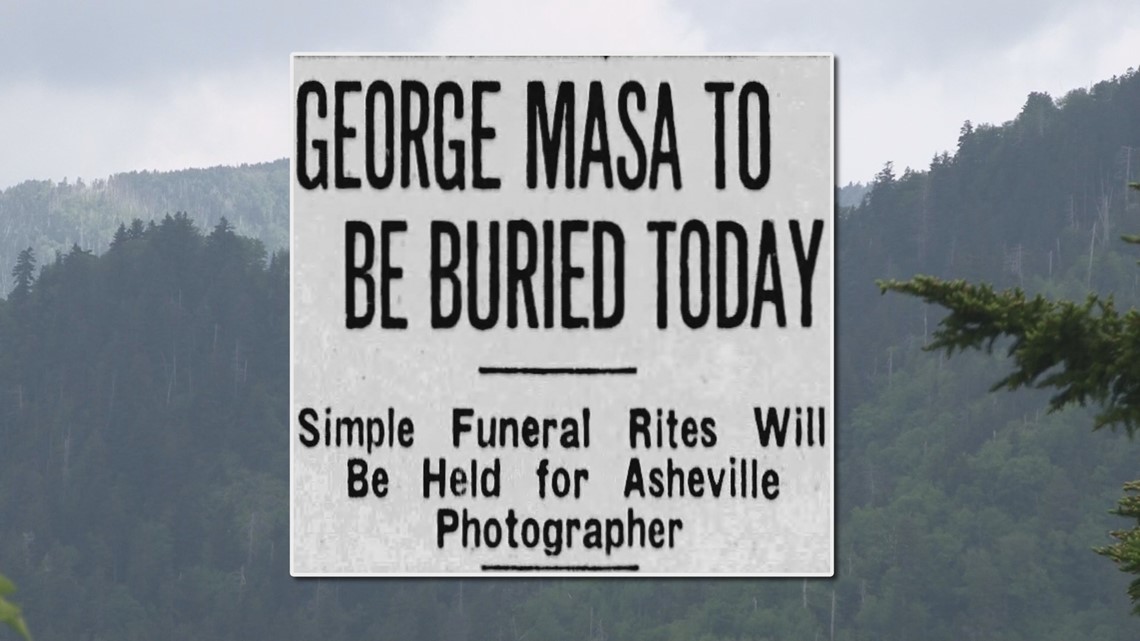
The Great Smoky Mountains were well on their way to becoming certified when Masa was stricken with influenza after a hike to Mount Kephart. George Masa's health declined quickly and he died a year before the Great Smoky Mountains were officially recognized as a national park.
Masa’s friends and family made sure he would not be forgotten and named one of the peaks in the Smokies after George. They called it Masa Knob, and it sits at an elevation of 6,000 feet.

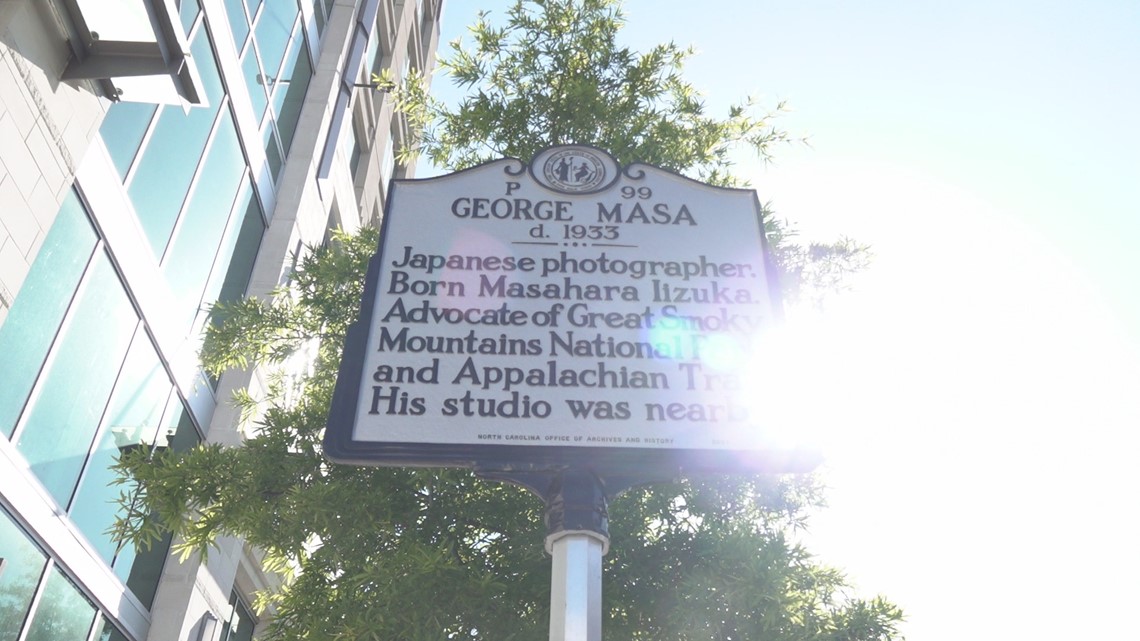
Today, there is a historical marker for George Masa in the heart of downtown Asheville, North Carolina, and recently, the East Asheville Public Library honored Masa with an exhibit where people can learn about Masa’s life and photography, but documentarian Paul Bonesteel feels there’s a way we can all honor the life of George Masa.
“A cool way to honor his life and his work is to spend time in the Great Smoky Mountains. Go to the top of Mount Kephart of Masa Knob or Mount LeConte. Go up high in the Smokies. That’s where he found his peace, and you can still find that today,” Bonesteel said.
Kin Takahashi
During fall nights in the late 1880s at Maryville College, one student could be found hunched over his desk in his dorm room.
His task at hand required dozens of grains of corn, nimble fingers and unwavering concentration.
In 1888, his dorm room desk served as a drawing board for what would eventually become one of East Tennessee's most sacred traditions.
Kin Takahashi was on a mission of creating the region's first football team.
Henry Cho

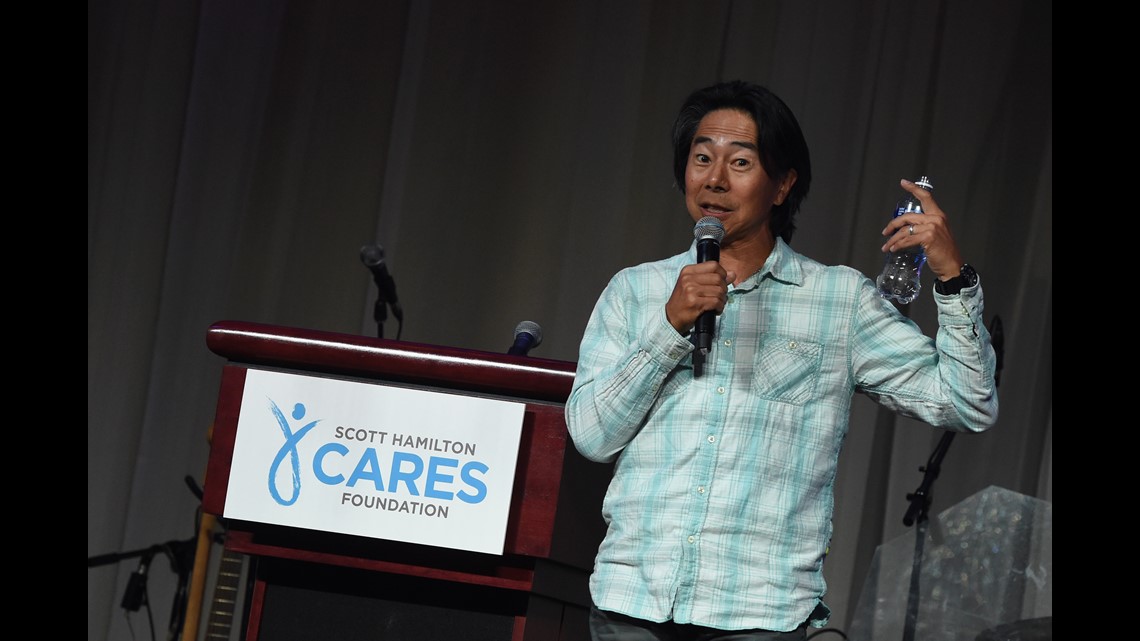
Comedian Henry Cho is an Asian American with a Southern accent.
The Knoxville native is leaving his mark on the world of comedy.
Back in February, Cho became the 229th, and the only Asian member of The Grand Ole Opry.
He is also the first comedian since 1972 to join the Opry.
Since 1986, Cho has made people laugh using his childhood experiences as an Asian American growing up in the South.
"I went down to The Funnybone, I had no idea what I was doing in 1986, I won and I got hired and that was 37 years ago. Knoxville has always supported me anytime I've come out to do a show. Thanks for doing all that throughout the decades. I hope you continue to do that because I'm not going to stop touring. If anything, I may charge more," Cho said.
In 2022, Cho won an American Hero Award from the American Korean Friendship Society.
He has a show at the Bijou Theater in October. Tickets are on sale now.
Seoul Brothers
To Vic Scott, food is about more than satisfying hunger. Creating and sharing food has been a healing journey.
"Being in the heart of the south and there not being a large Asian population, we ate things at home people had no idea what it was. When you pack your lunch to go to school and your mom packs gimbap and you open your lunch box at school and people go 'ew what is that?', it's an experience a lot of Asians have at some point in their life," Seoul Brothers owner Vic Scott said.
Vic Scott and her brother Josh Scott opened Seoul Brothers inside Marble City Market unsure if Knoxville would embrace their very personal dishes.
"It's all rooted in our mother, and Josh learning the recipes from her when we were kids. It's the memories of growing up in the South and fusing Korean flavors into dishes we already loved from school and things our friends ate," Vic Scott said.
The menu is dotted with combinations of fried chicken with sticky, sweet and spicy Korean sauces and French fries with kimchi.

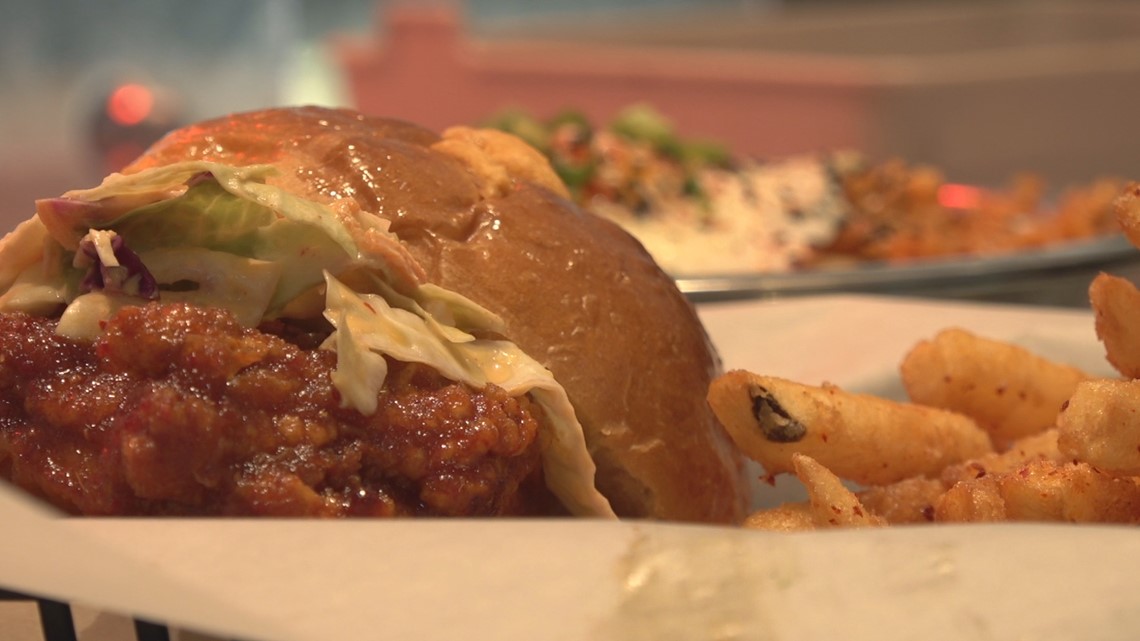
Their menu was an immediate success. The first launch of their food truck sold out in under two hours.
"It was almost instantaneous tears. it really hit me in the heart and we were super appreciative of the turnout and how Knoxville really embraced us," Vic Scott said.
Josh and Vic's stories told through food have expanded to a second storefront inside Marble City Market and to another concept inside Pretentious Beer.
"Being able to share our flavors of our childhood with other people and having them enjoy them and experience them for the first time is really just great," Vic Scott said.
Denso

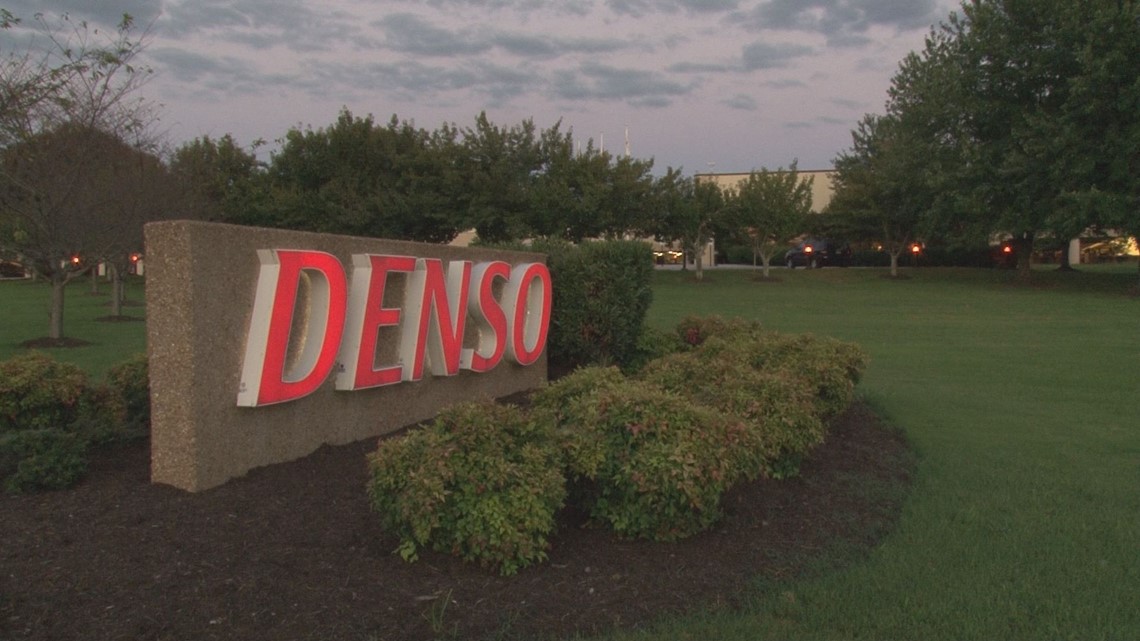
"Denki" is the Japanese word for "electricity" and "sochi" is the Japanese word for "device." The combination of these terms led to what would become one of Maryville’s largest employers: Denso.
Announced on December 23, 1987, the $200 million project was called an early Christmas present by Blount County executives.
Ground broke on the auto components manufacturer's Maryville branch in May 1989.
Nippondenso opened its first two Blount County plants on October 16, 1990. 600 employees, known as associates, began producing instrument clusters, alternators and starters.
The following year, a third plant was opened. The occasion was celebrated with the painting of an eye on a ceremonial doll.
Denso was profitable and shelled out more than $12 million in salaries as well as $4 million in property taxes that year, but local officials said the benefit of hosting a Japanese company is more than dollars and cents.
“The interactions in the neighborhoods and the communities and the schools have been very interesting and an enrichment process,” Jerome Moon of the Blount County Chamber said.
In July 1995, Nippondenso expanded operations into Athens and a year later changed its name to just Denso.
Today, Denso Manufacturing Tennessee has grown to five manufacturing plants and 4,150 employees on 2.6 million square feet of land.


